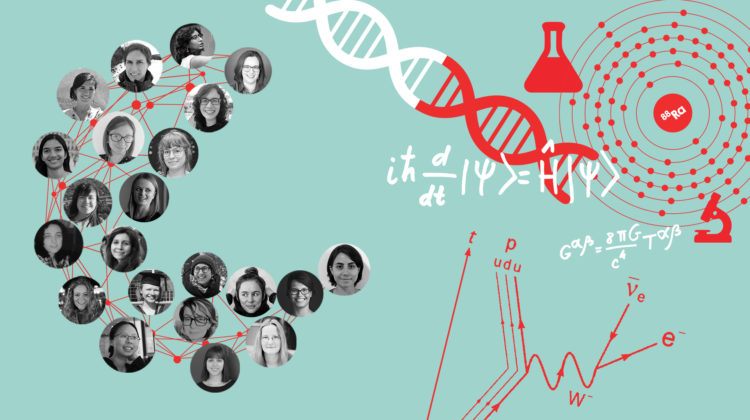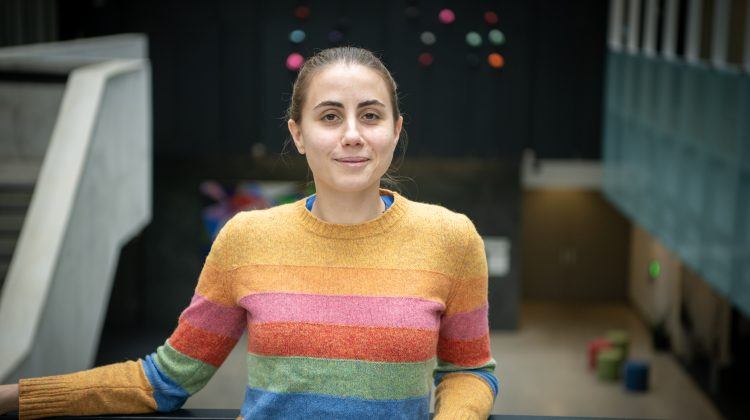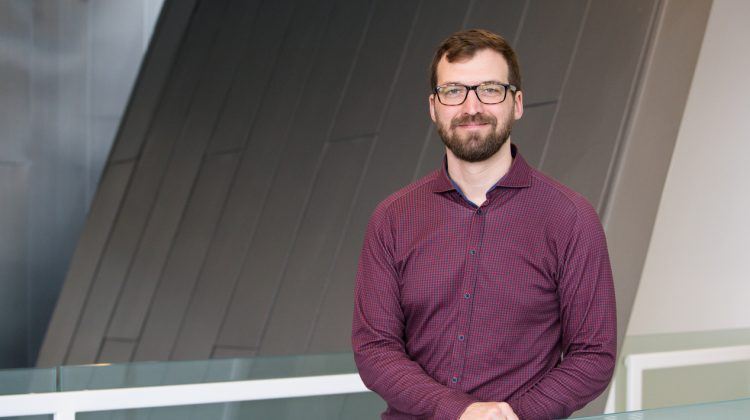EinsteinPlus helps physics teachers “turn on the sparkle of curiosity” in their classrooms
Perimeter hosts inspiring week-long professional development event for high school teachers.
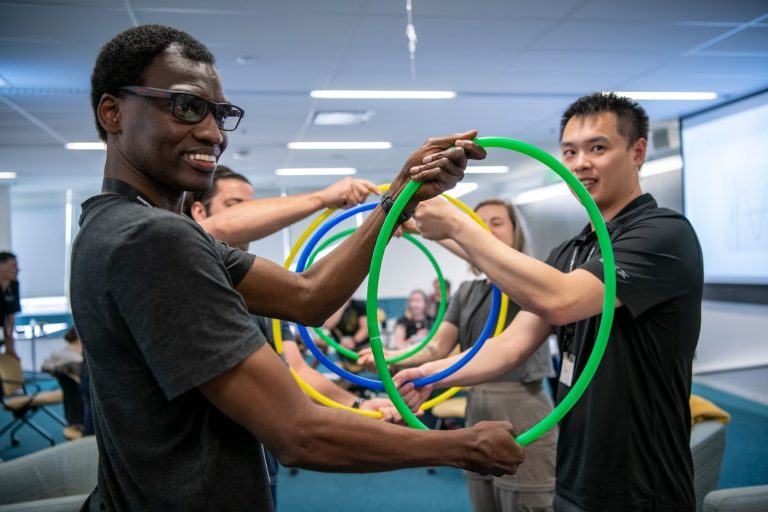
The Time Room at Perimeter Institute quickly filled with balloons, glow sticks, plastic cups, tape, flashlights, pop cans, elastics, Play-Doh, boxes of various shapes and sizes, and even a squeegee. But, best of all, with the sounds of uproarious laughter and shouts of “hurrah!”
This was EinsteinPlus 2023, a week-long professional development event put on by Perimeter Institute’s Educational Outreach department in July to help high school teachers from Canada and other parts of the world find new and engaging ways to bring modern science teaching to their students.
The 38 participants from Canada, Australia, Brazil, Mexico, India, Türkiye, and the United States had fun using simple and inexpensive Dollar Store items to create physics experiments for the classroom.
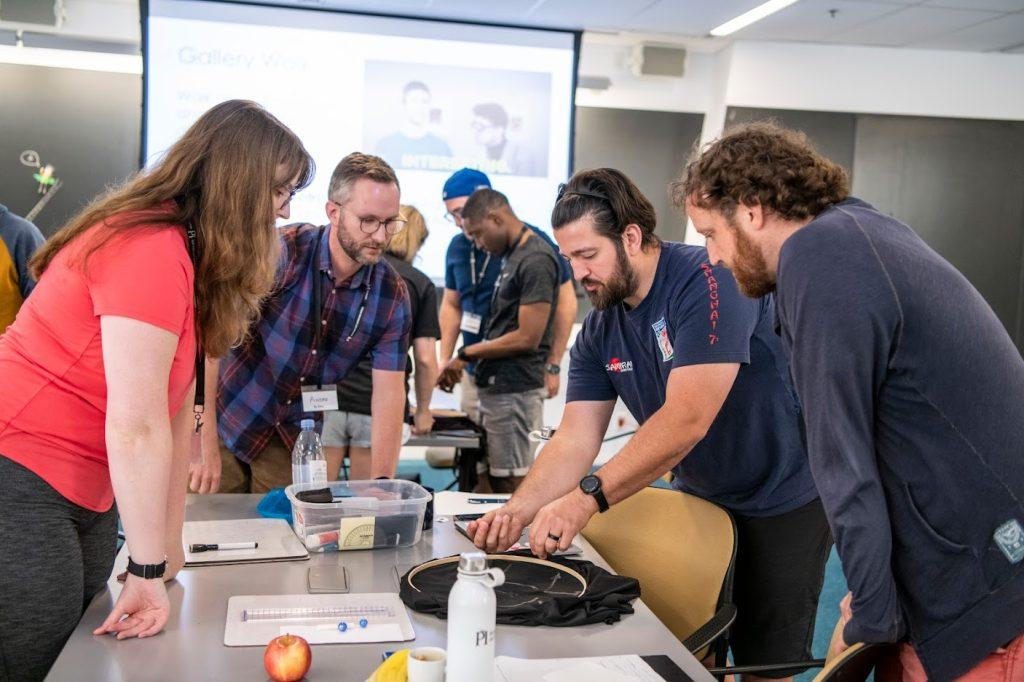
They demonstrated “vortex cannons” using plastic cups and balloons to get students thinking about what happens when air moves. They built an electrical conductivity experiment using Play-Doh and a string of LED lights. They made wave models out of sticks and packing tape.
The teachers were guided by the various educational resources that are free to download from Perimeter’s website – such as the Beyond Bohr activity that explores the modern conception of the atom, to resources on black holes and climate change, to a tabletop escape room for exploring exoplanets.
Participating teachers praised the hands-on nature of the program. “The more hands-on activities you can do in the classroom, the more engaged the students’ senses are,” said Itty Gupta, from Elsie MacGill secondary school in Milton, Ontario, who was at EinsteinPlus for the first time.
Ara Karakashian from St. Katharine Drexel Catholic High School in Whitchurch-Stouffville, Ontario, said attending EinsteinPlus is part of his effort to revamp his course material to incorporate more modern methods. “I want to make the teaching more applicable to the students, and to encourage and inspire them.”
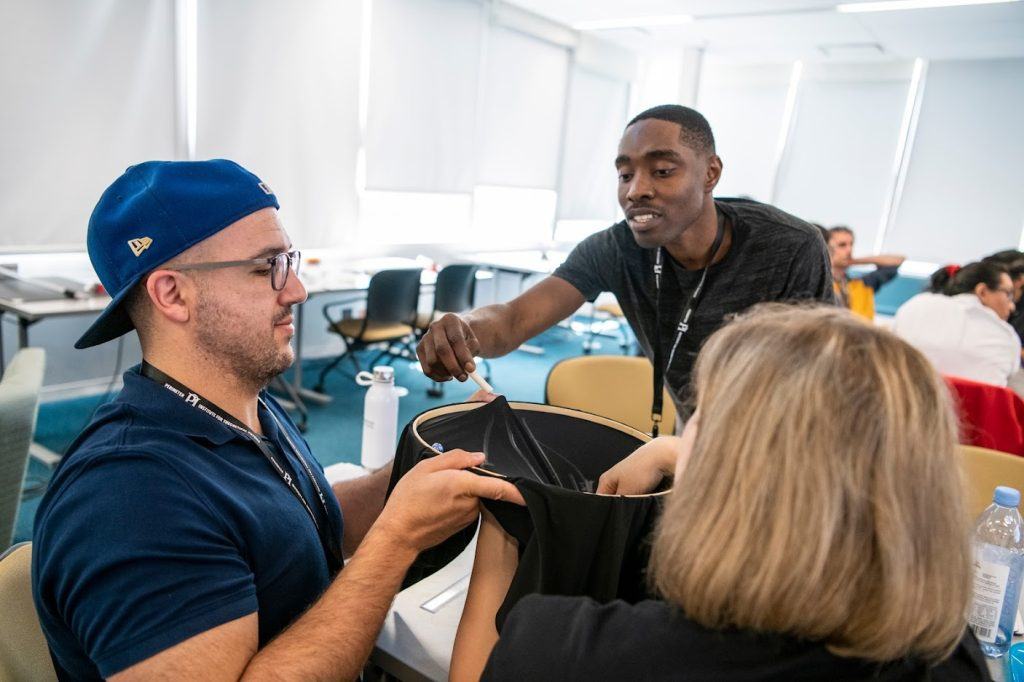
The session facilitators came from ranks of educators, as well as members of the Educational Outreach staff at Perimeter.
In creating the models, the teachers were also challenged to ask: “How good a model is it?” and “What are the shortcomings?” said Laura Pankratz, a facilitator from Edmonton, Alberta.
EinsteinPlus “revolutionized the way I was teaching,” added Saara Naudts, a facilitator from Mayfield Secondary School in Caledon, Ontario. As importantly, “It creates a network with like-minded teachers to compare and share with, so it is like a gift that keeps on giving,” she said.
Keynote speakers included Dustin Lang, a Perimeter computational scientist who has worked on CHIME (the Canadian Hydrogen Intensity Mapping Experiment), and Asimina Arvanitaki, a particle physicist who holds the Stavros Niarchos Foundation Aristarchus Chair in Theoretical Physics at Perimeter and designs experiments to probe the nature of dark matter.
Aldo Riello, a Perimeter Scholars International Fellow and part of the academic staff, ran a session on “the toughest questions students ask,” such as, “What would happen to the planets if the sun suddenly disappeared?” Riello explained that this is a good question that can lead to a discussion about the Newton versus Einstein gravity models.
The teachers travelled from far and wide to take part in the professional development.
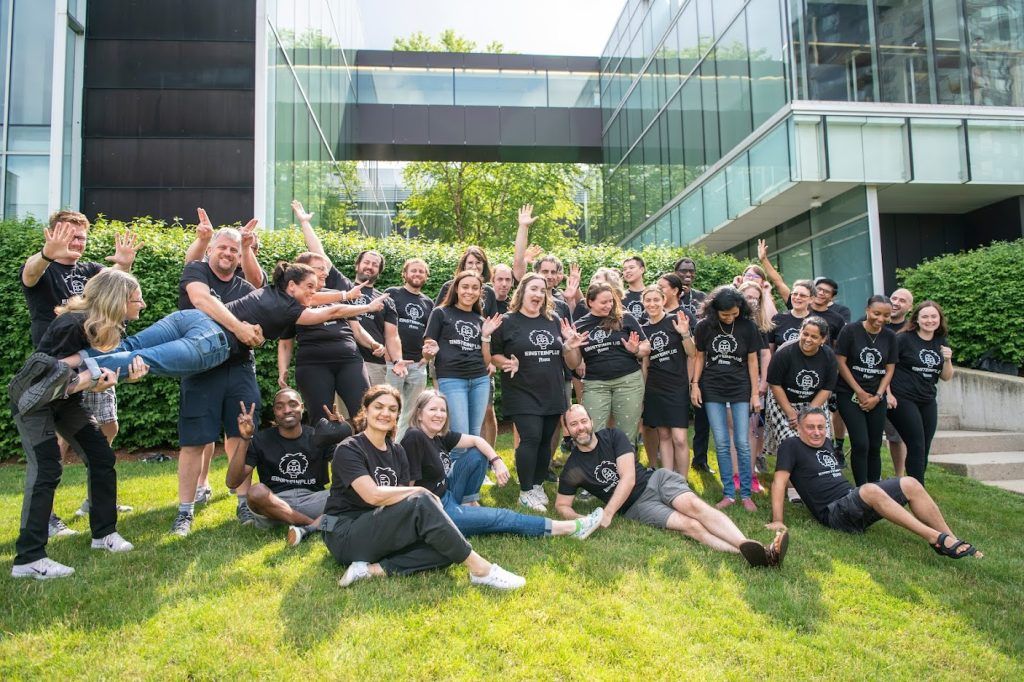
Joe Cossette, a facilitator from Minnetonka High School in Minnesota, said “It is a chance to feel what it is like to be a student again,” as well as “meet amazing people who teach physics around the world.”
Fernando Torres Pérez, who teaches at HS Centro Histórico León, a high school in Guanajuato, Mexico, said this was also his first time attending EinsteinPlus but that he had been involved in similar professional development programs for teachers elsewhere, such as the teacher programs at CERN (European Council for Nuclear Research) near Geneva and at LIGO (the Laser Interferometer Gravitational-Wave Observatory) in the United States.
“I like to travel for this kind of program, to learn how science is taught in other countries and how I can improve the teaching in my classroom,” said Torres Pérez, who also designs science workshop activities for elementary school teachers and for a high school science club in Mexico.
Torres Pérez said if students have knowledge of how science impacts their lives and how important it is, they will become self-learners. “If we as teachers can turn on this sparkle of curiosity, they will want to learn more, and they will do so even on their own.”





















































































